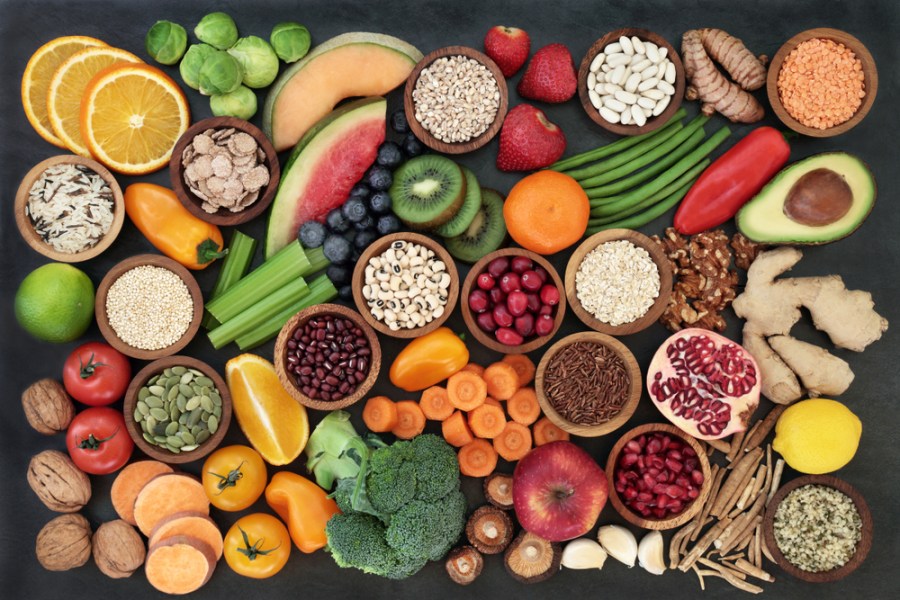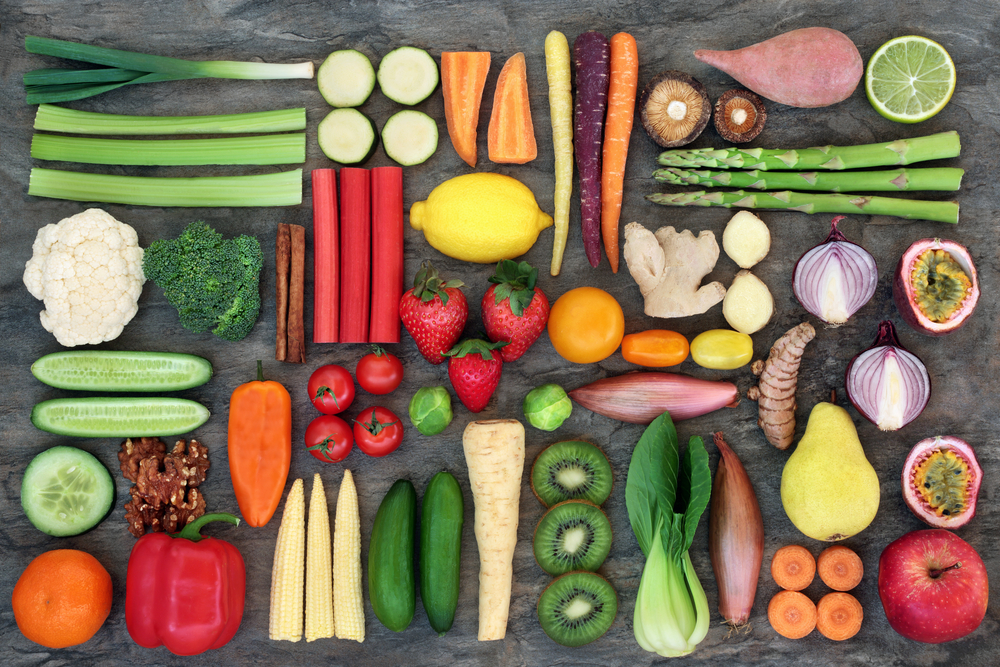If you’re looking to add more fibre to your diet, there are lots of natural food sources which are packed with the good stuff! Fibre is an essential part of a healthy diet, and there are lots of delicious ways to add more to everyday meals. It keeps your digestive system working normally and helps you feel lighter and full of energy. Lose weight, lower cholesterol and keep your digestive system happy with these ingredients.
Why do we need fibre?
We need dietary fibre (or fiber as it’s known in America) for good gut health, including digestion and regular bowel movements to prevent constipation. It also keeps you feeling fuller for longer, so it’s a handy tool for anyone trying to lose weight. Fibre has an important role in improving cholesterol levels and can help keep blood sugar levels even.
There’s some evidence that eating plenty of fibre will help to reduce your risk of bowel cancer, heart disease and type 2 diabetes.
Benefits of fibre for the gut
New research claims that eating high fibre foods reduces stress levels in the body, and could prevent leaky gut. High fibre foods are the primary source for short-chain fatty acids in the body, and having low levels of these can cause food and bacteria to leak into the gut, or make the gut work less effectively, according to the study from University College Cork.
How much fibre do I need to eat?
The recommendation is 30-38g a day for men every day, 25g for women aged 18-50, and 21g per day for women over 50.
Which foods contain fibre?
Upping your fibre could be the solution to your constipation issues, and the best way to ensure a healthy digestive system is to eat fibre from a wide range of sources. These foods are excellent sources of dietary fibre.
- Split peas (16.3g per serving) add to soups, stews and dhal.
- Black beans (15g per serving) great for making veggie burgers, adding to salads and chilli, and even using in brownie recipes.
- Artichokes (10.3g per medium artichoke) – more fibre per serving than any other vegetables. Roast them up or enjoy from a jar.
- Peas (8.8g per serving) so versatile and of course extra good with fish and chips!
- Broccoli (5.1g per serving) boil, stir-fry, roast or dip raw into hummus.
- Brussel sprouts (4.1g per serving) love them or hate them, the Christmas staple is a great source of fibre.
- Avocado (6.7g per half) the millennial favourite strikes again, adding a fibre boost to salads, toast or anything else you fancy.
- Bran Flakes (7g per cup) there’s a reason these trusty flakes are a breakfast staple around the country.
- Whole-wheat pasta (6.3g per serving) swap your white pasta for a fibre hit with minimal taste difference.
- Pears (5.5g per pear) sweet, tasty and so good for you.
- Raspberries (8g per serving) packed with Vitamin C, these seasonal treats are full of fibre too.
- Blackberries (7.6g per serving) extra motivation to go foraging this August.
- Lentils (15.6g per serving) the vegetarian staple is really versatile – add to soup, stews, curries, salads or pasta sauce.
- Oats (4g per serving) yet another reason to start the day with a steaming bowl of porridge. Add chopped fruit or berries for extra fibre benefits.
- Flaxseed (3.8g per two tablespoons) add to porridge, smoothies, salads or yoghurts.
- Chia seeds (5.5g per tablespoon) these have been hailed as a superfood, and with a fibre content that high we can see why! Add to cereals, smoothies, yoghurts or salads.
- Apples (4.4g per apple) there’s a reason that these keep the doctor away.
- Quinoa (6g per serving) plus it’s also full of protein.
- Pearl barley (6g per serving) a handy little grain that’s great in stews.
- Popcorn (3.6g per three cups) swap the cinema variety for air popped and you’re onto a health winner.
- Whole-wheat bread or rye bread (both 1.9g per slice) it’s time to give carbs the credit they deserve. Top with avocado for extra benefits.
- Dried figs (1.6g for two) a sweet snack that’s full of fibre.
- Baked beans (10.4g per serving) not just good for your heart after all…
- Jacket potato with skin (2.9g per small potato) add baked beans for a fibre hit.
- Carrot (1.7g one medium carrot) add grated carrot to salads, or snack on them as they come.
- Orange (3.1g per medium orange) boost your Vitamin C at the same time.
- Banana (3.1g per medium banana) add to porridge for a double hit. Read more about the health benefits of bananas.
- Raisins (1g per 60 raisins) we knew there was a reason behind our love of Christmas cake.
- Almonds (3.5g per 23 nuts) a healthy snack that’s great for your skin too.
- Tomato paste (2.7g per ¼ cup) a cupboard staple that packs a punch.
- Mangoes (5.4g per fruit) are a fibre-filled wonder, with a recent test demonstrating mangoes work better than constipation medicines.
- Mushrooms are packed with chitin, which is a water-insoluble fibre that isn’t metabolically active. This means it’s got no calories but will keep you feeling fuller for longer.
- Chickpeas (7g fibre per 100g) are also high in protein and essential vitamins and minerals.
- Strawberries (6.7g per 100g) are packed with Vitamin C and manganese, as well as being a delicious sweet treat.
- Find out more about how to boost your gut health









